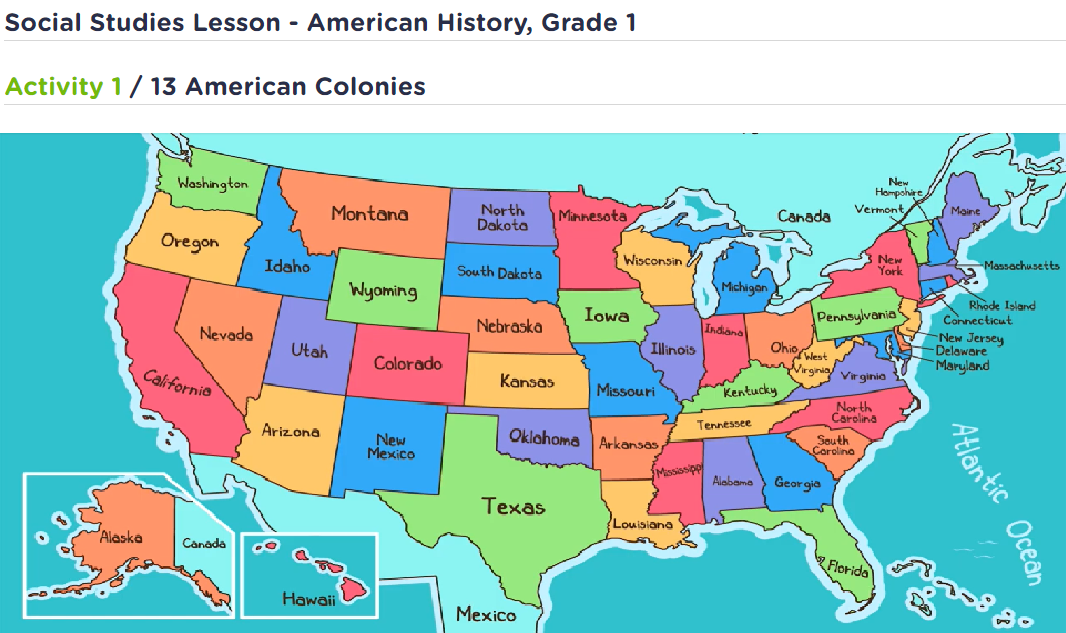Elementary Phonics worksheets activities for 5-Year-Olds
11 filtered results
-
From - To
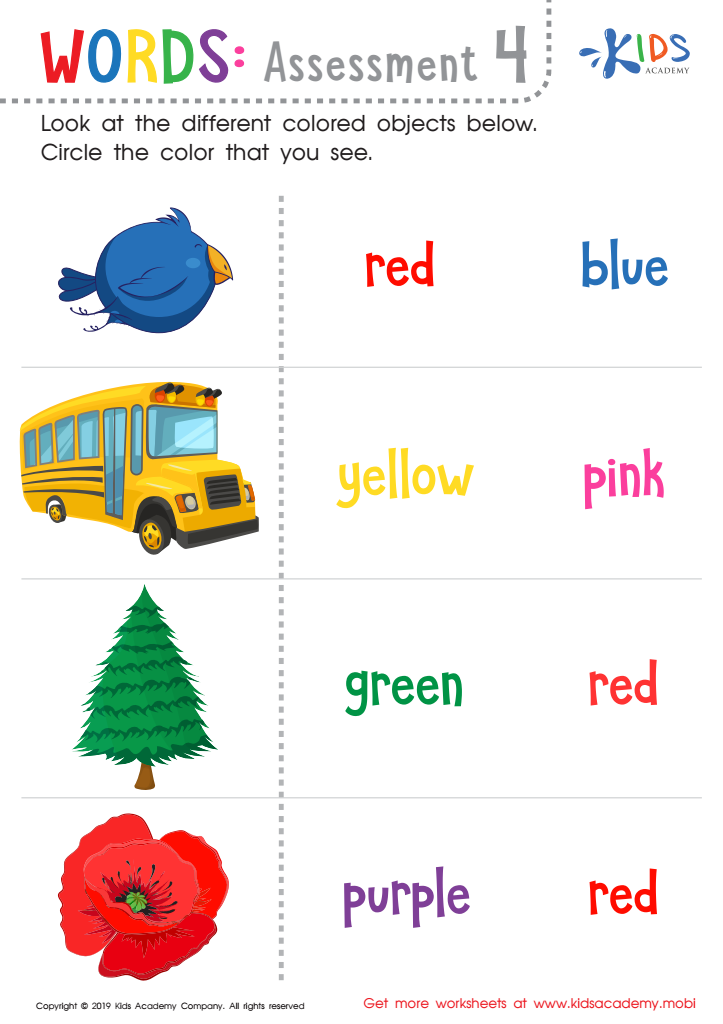

Words: Assessment 4 Worksheet
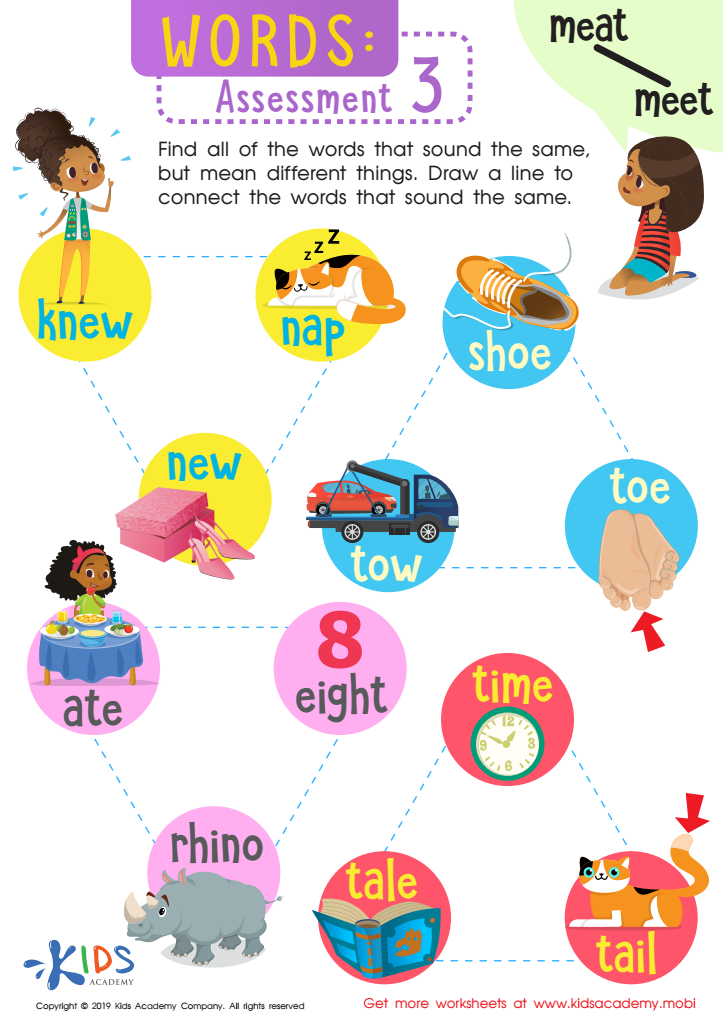

Words: Asessment 3 Worksheet
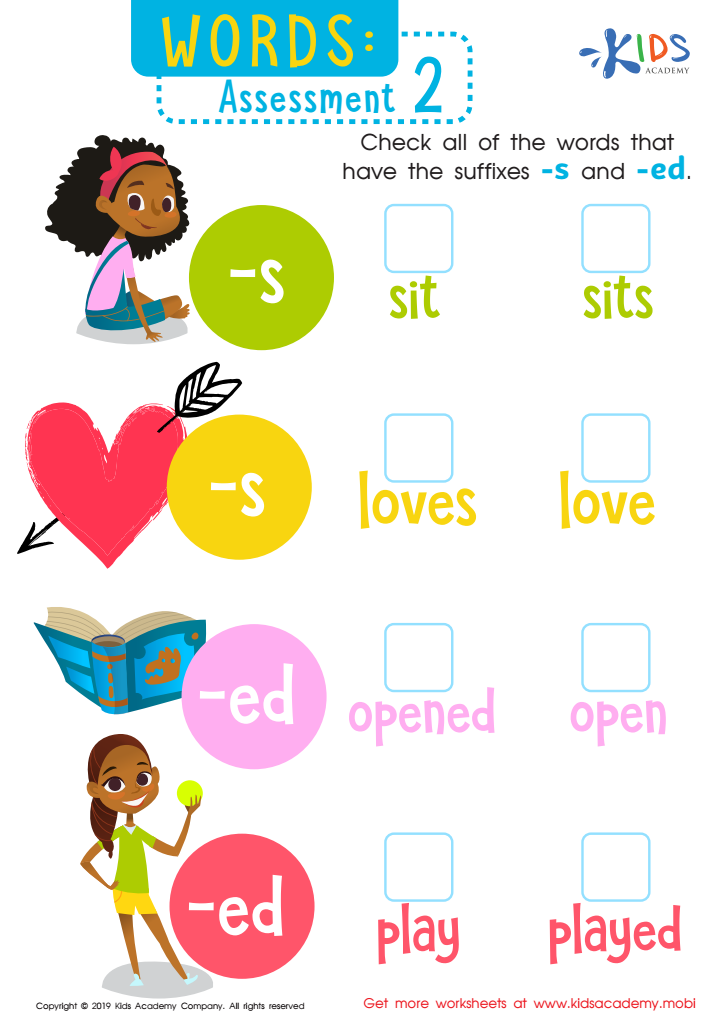

Words: Assessment 2 Worksheet
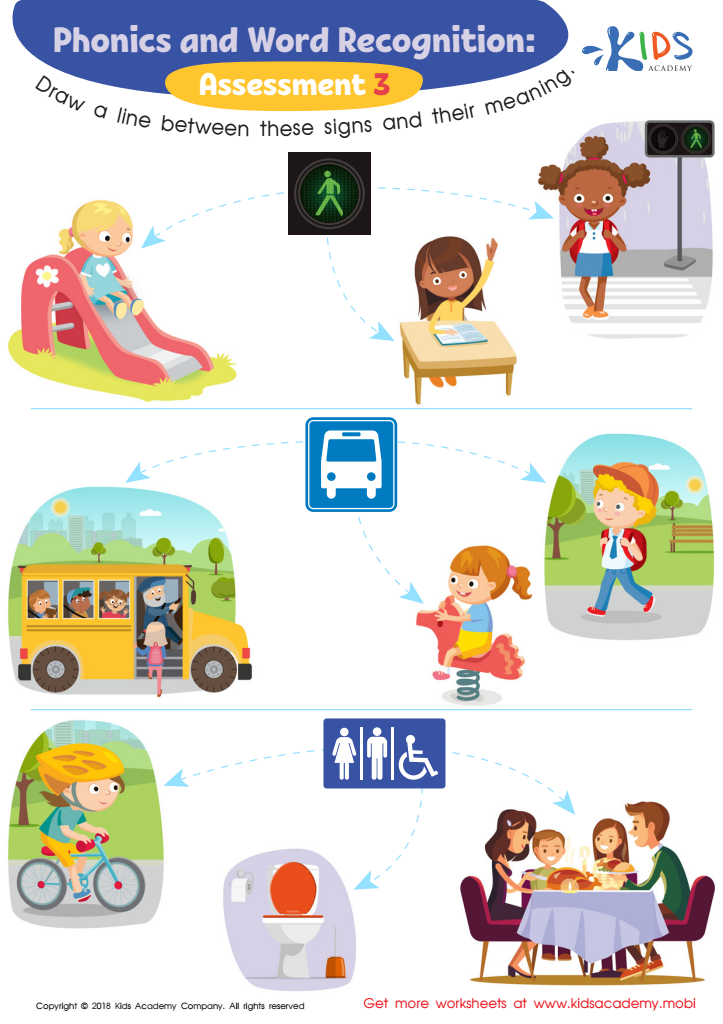

Phonological Awareness: Assessment 3 ELA Worksheet
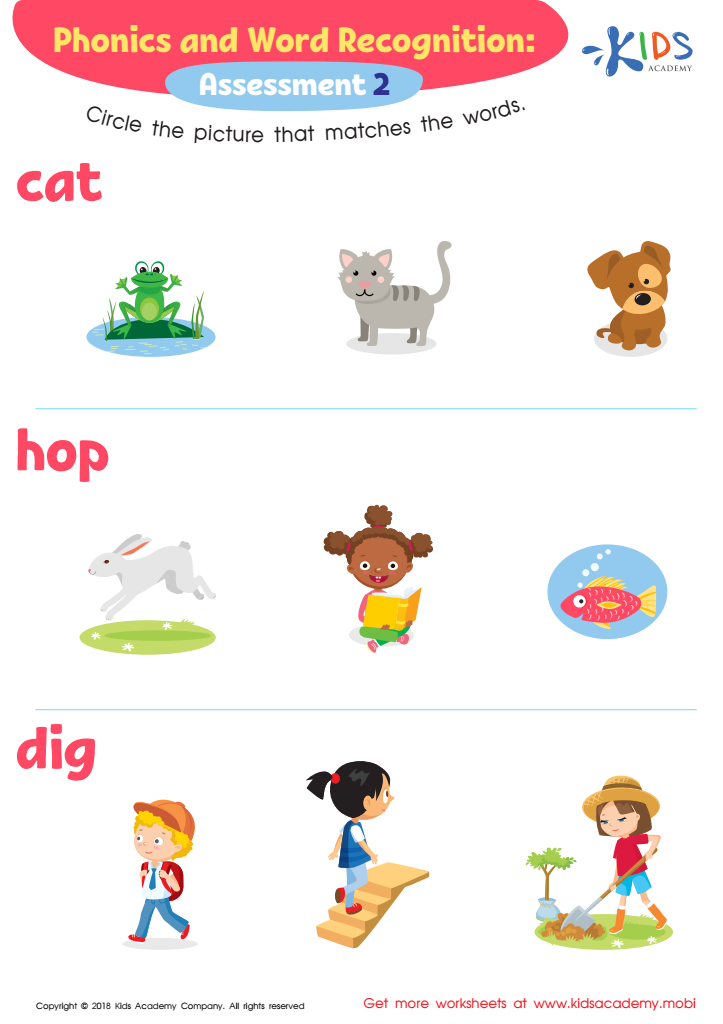

Phonological Awareness: Assessment 2 ELA Worksheet
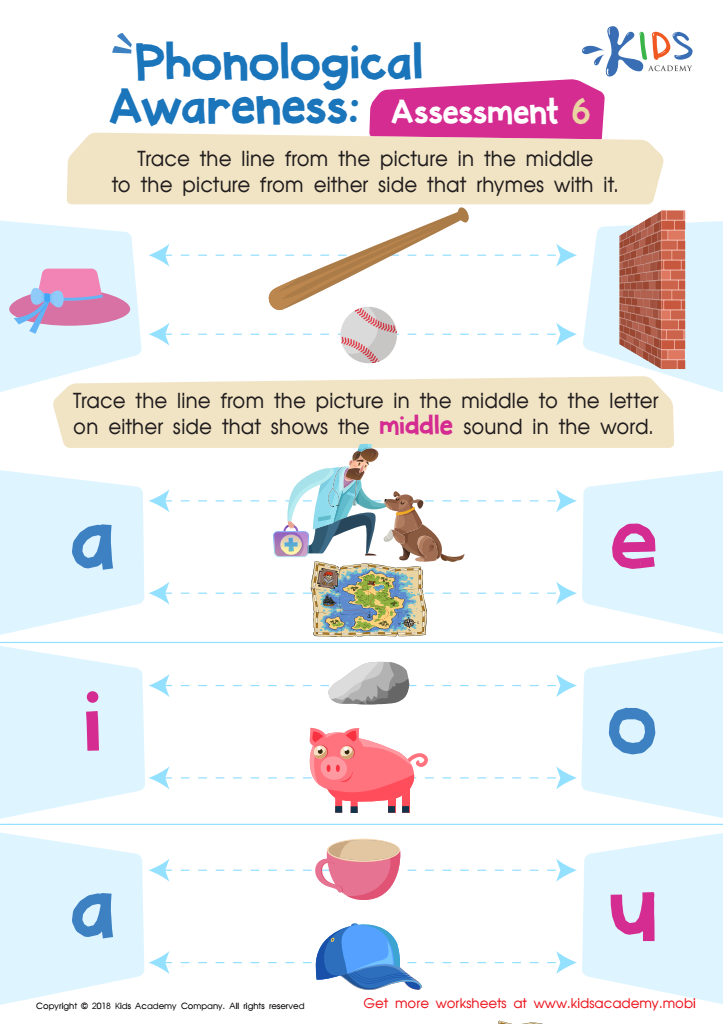

Phonological Awareness: Assessment 6 Worksheet
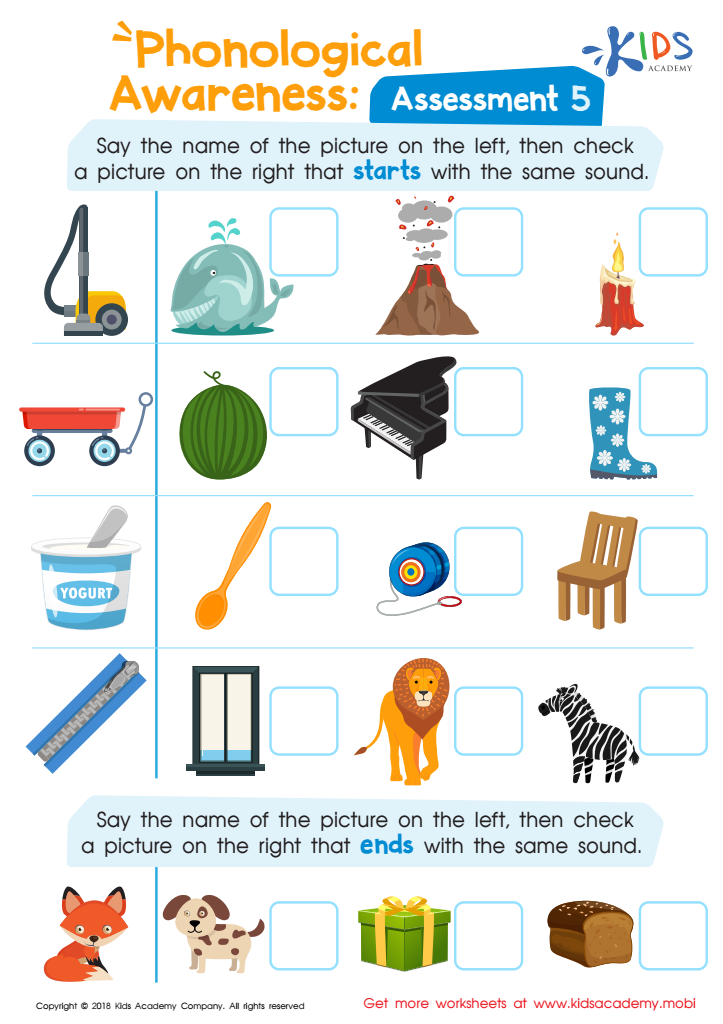

Phonological Awareness: Assessment 5 Worksheet
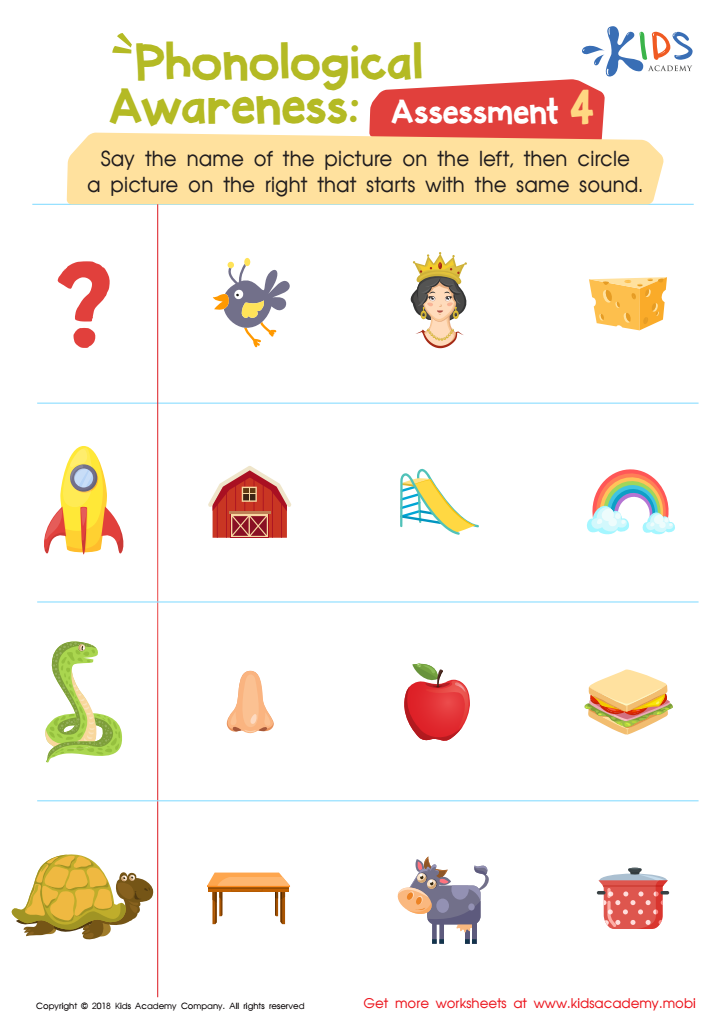

Phonological Awareness: Assessment 4 Worksheet
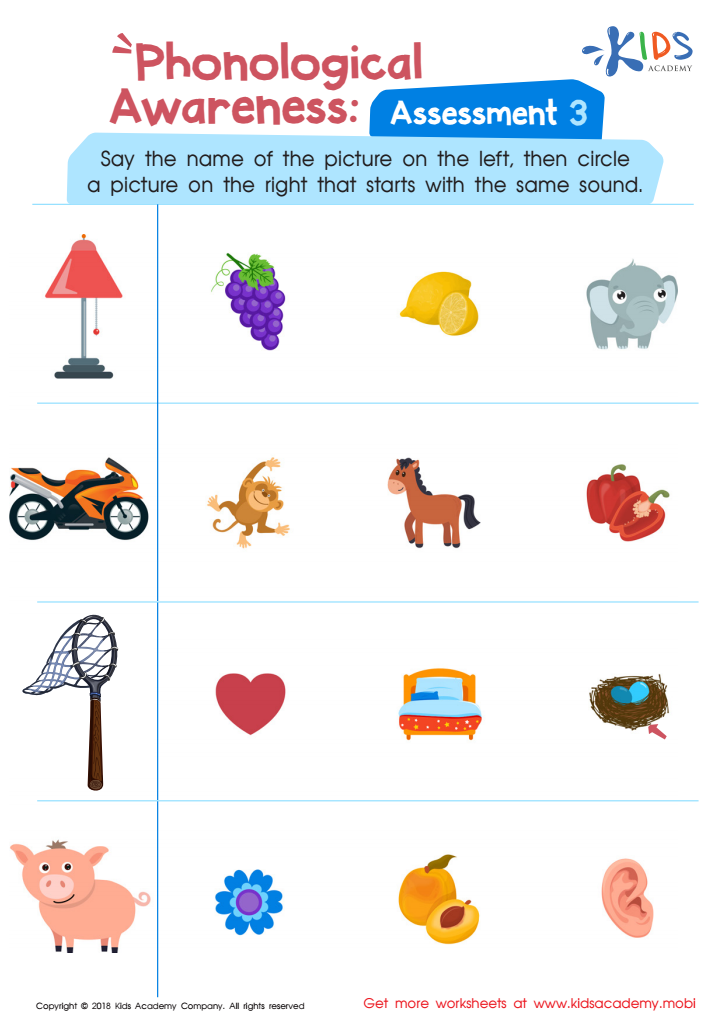

Phonological Awareness: Assessment 3 Worksheet
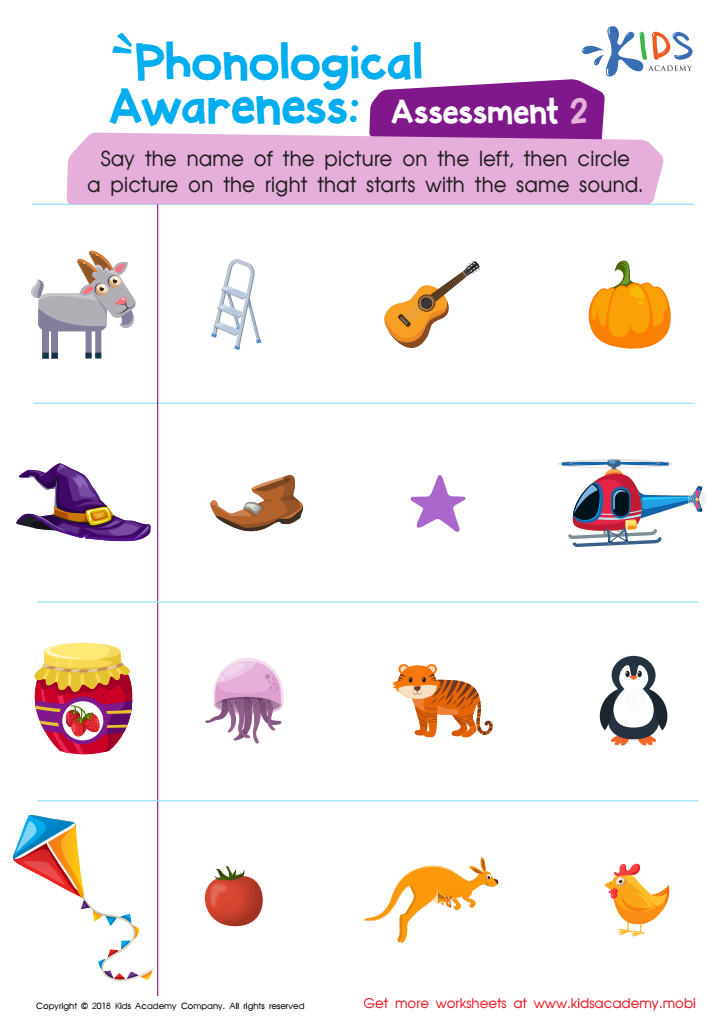

Phonological Awareness: Assessment 2 Worksheet


Phonological Awareness: Assessment 1 Worksheet
Elementary Phonics worksheets activities serve as a cornerstone in the foundational reading skills that young learners need to develop. These activities are not merely pages of work but are dynamic tools that engage students in the interactive learning process of recognizing, understanding, and applying the sounds that letters and letter combinations make. Here are several reasons why Elementary Phonics worksheets activities are instrumental in a child's educational journey.
Firstly, these worksheets are designed to reinforce the connection between letters and sounds in an engaging and meaningful way. By systematically working through these activities, children can understand the basic building blocks of words, which is essential for reading fluency and comprehension. The repetitive nature of Phonics worksheets helps to solidify this knowledge, making it easier for students to decode new words independently.
Moreover, Elementary Phonics worksheets activities cater to a variety of learning styles. Whether a child is a visual, auditory, or kinesthetic learner, these worksheets can be adapted to suit their unique learning needs. For instance, visual learners benefit from seeing the letters and patterns on paper, auditory learners from hearing the sounds as they read aloud, and kinesthetic learners from tracing and writing the letters and words. This adaptability makes Phonics worksheets an invaluable resource for diverse classrooms.
Additionally, these worksheets provide a structured approach to learning Phonics, which can be particularly beneficial for early readers. By breaking down complex phonetic concepts into manageable tasks, children can experience success in small steps, fostering a sense of achievement and encouraging a positive attitude towards reading.
In conclusion, Elementary Phonics worksheets activities are a vital part of teaching young learners to read. They offer a systematic, adaptable, and engaging way to explore the relationships between letters and sounds, laying the foundation for successful reading and spelling skills. By incorporating these activities into the educational curriculum, educators can ensure that students develop a solid base upon which to build their future literacy achievements.

 Assign to the classroom
Assign to the classroom

